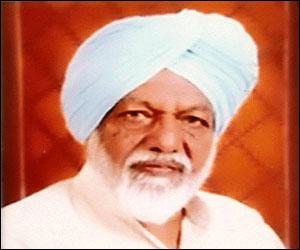
Add Your Heading Text Here
Ramsarup Ankhi” (ਰਮਸਰੂਪ ਅਖੀ) is one of Nanak Singh’s lesser-known but socially significant novels, reflecting his signature blend of realism and moral storytelling. Set in rural Punjab, the narrative revolves around Ramsarup, a blind man whose physical disability becomes a metaphor for societal blindness—toward injustice, caste oppression, and human suffering. Through Ramsarup’s struggles, Nanak Singh critiques the exploitation of the marginalized, highlighting how poverty and systemic inequities perpetuate cycles of despair. The novel also explores themes of resilience, as Ramsarup’s inner wisdom and moral clarity contrast with the “sighted” yet morally blind villagers. Nanak Singh’s prose is poignant yet restrained, using rural dialect and vivid imagery to immerse readers in Punjab’s agrarian landscape. Unlike his Partition-centric works (Khoon de Sohile) or political novels (Chitta Lahu), Ramsarup Ankhi focuses on micro-level humanism, echoing Gandhian ideals of self-reliance and dignity. Though not as widely read as Pavitar Paapi or Adh Khidya Phul, the novel remains a testament to Nanak Singh’s ability to weave ethical dilemmas into everyday lives, urging readers to “see” beyond superficial judgments.